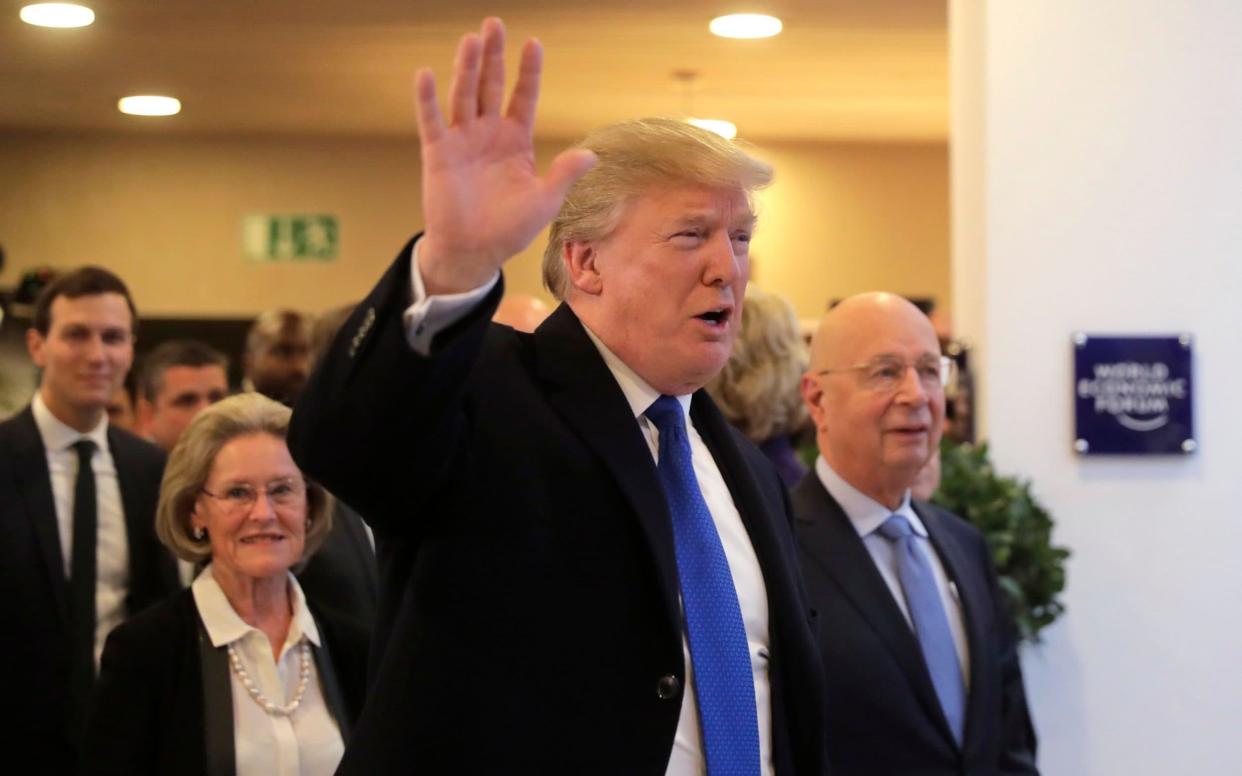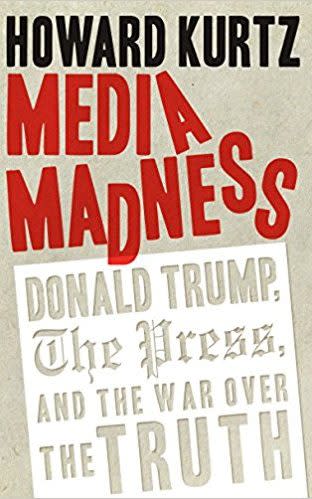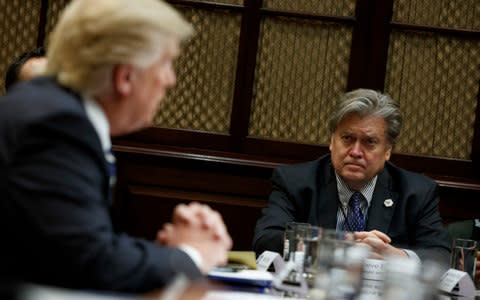Howard Kurtz's Media Madness shows that Trump isn't the only one responsible for fake news - review

Donald Trump’s healthcare bill was one of the disasters of his first year in power. His difficulty in piloting it through Congress and rolling back Obamacare marked an early low.
The Trumpcare tussle revealed something about his inability to navigate Washington’s swamp but, according to Howard Kurtz’s pacy new account of a White House locked in battle with journalists, it also showed up the ugly side of the mainstream media elite. As far as they were concerned, Trump voters were getting their just desserts.
The coverage of a wonkish policy matter was filled with broadsides against the president’s working class supporters. Didn’t they realise, ran commentary after commentary, that the measures in the bill would make them worse off under Trump? The stupid lemmings had voted to lose the protections introduced by Barack Obama.
As ever, Twitter took everything to the next level. Kurt Eichenwald, a writer for Newsweek, used 140 characters to write that he hoped that every Republican in Congress who voted for Trumpcare “sees a family member get long term condition, lose insurance, & die”.
Of course, it would be easy to take that tweet and extrapolate it into a trend, a thesis, a narrative. Which is why we all do it.

In Media Matters, Kurtz collects many more examples of how journalists have used their contempt for a bloviating billionaire reality TV star to slant their coverage of Mr Trump’s administration. The healthcare debacle demonstrates just how bizarre some of the reporting has become.
“How did people who marched under the liberal banner,” he writes, “who professed to care about the little guy, wind up hoping for lower-income Americans to lose their health insurance, even drop dead?”
Kurtz’s answer will be unpalatable to much of the American media world, casting blame not just on Mr Trump’s reign of “alternative facts” but at the journalists who let it happen.
His argument is multi-faceted although at its core it's both the bubbleisation of America’s media landscape, garrisoned in coastal, liberal cities, and the concurrent devaluation of fact-based journalism.
The inbuilt liberal biases of the media meant that they missed the rise of Trump the candidate. Now, to save face, they keep their fingers crossed that President Trump is on the brink of annihilation, whether from sex scandal, Russia investigation, dementia or a combination of all three.
At the same time, the demand for hot takes or sensational headlines on incremental developments meant journalists were happy to give over the news cycle to obscure critics of the president, from the Congressman with a lively Twitter habit to the teacher who spent $5,000 on protest Easter eggs.
In other words, the rise of fake news is not just down to self-publicists like Trump. Both sides are to blame for this war.

Kurtz builds his case with a lively eye for the sort of behind-the-scenes detail that made Michael Wolff’s recent Fire and Fury so readable. Readers who want gossipy intrigue will enjoy new details about Trump’s deflective Twitter strategy and his dysfunctional team of knee-jerk leakers but may raise their eyebrows at Steve Bannon’s characterisation as a strategic genius. (As a student of history, Mr Bannon appears to realise the benefits of making sure his side of the story is prominent in the written records.)
The pushback has already begun. Kurtz’s record as a commentator for Fox News is reason enough for some of his targets to reject the analysis. And his criticisms of Trump sometimes feel like they were shoe-horned into late drafts: “To be sure, Trump has at times made mistakes, stretched or obscured the truth, and gone too far in attacking journalists and painting them as enemies of the country.” You don’t say?
But to focus on the book as a defence of Trump is to miss the point. It is rather an indictment of the modern American news culture. Trump will come and go but journalism will remain. America needs its reporters to rise above the landscape of fake news and retain their objectivity.
In this sense, the president is as much effect as cause. He rode to victory by amassing free airtime and stoking controversy. Outlets such as CNN were happy to view the candidate as free content, broadcasting his rallies and regurgitating every utterance.
They weren’t the only ones. No matter how baffling Trump’s comments, no matter how demonstrably untrue, any headline that began with the words “Donald Trump” acted as pure clickbait in our age of “Search Engine Optimisation”.
It would all have failed the test of the editor for whom I worked at The Herald in Glasgow. He could bring the morning news conference to a rapid halt, killing off a proposed story based on an interview or quotation with one simple question.“That might be what he said, but is it true?” That was not so very long ago, but so much has changed.
Who raises those questions now? And, as Kurtz appears to be asking, who bears a greater share of responsibility for America’s ugly politics – the politicians who spotted their opportunity, or the media organisations who gave it to them?

